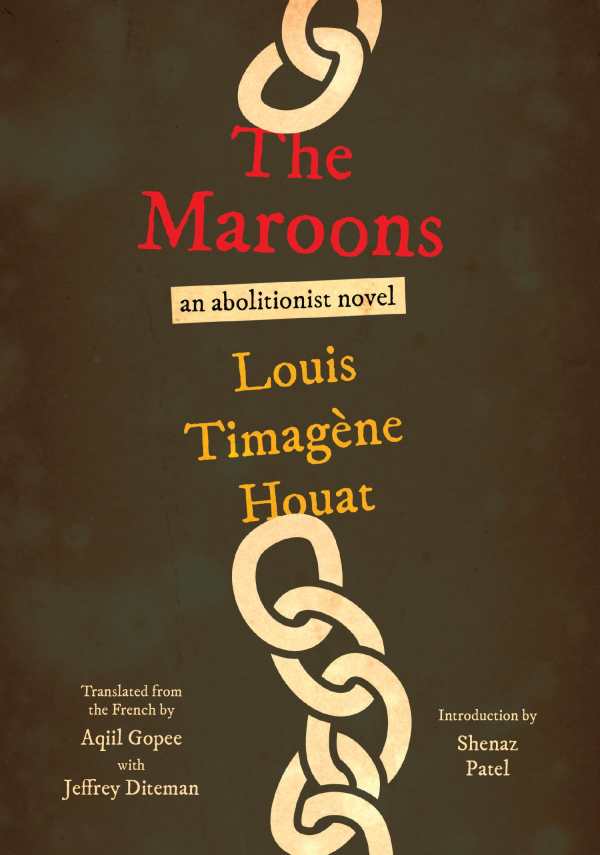The Maroons
An Abolitionist Novel
Louis Timagène Houat’s harrowing, hopeful abolition novel The Maroons introduces a crucial Black narrative to the English canon.
A maroon, a term used during the Indian Ocean slave trade, is defined as a fugitive, a Black person who escaped from those attempting to claim them as a slave and who resists the very concept of slavery. With the threat of endless abuse at the hands of their white “masters,” the narrative oscillates between four Black men—referred to as the Amboilame, the Antacime, the Sçacalave, and the Câpre (or Creole)—attempting to escape French-colonized Bourbon Island. On one such attempt, the Creole man discovers Frême and Marie, a Black man and a white woman who are the first interracial couple he ever witnesses. Although the four men seeking freedom remain unnamed, they are unforgettable for having suffered in unimaginable ways but remaining resilient, dreaming that tomorrow could be better.
Though painful at times, The Maroons shines a necessary spotlight on the abhorrent cruelty of the not-so-distant history of the Indian Ocean slave trade. Lush descriptions of the island scenery are juxtaposed with the appalling but all too real cruelty delivered at the hands of the “masters.” The novel was also groundbreaking for its time: it foresees a better future even while it toils in its agonized present. In the face of what appears to be interminable cruelty, its characters still hope that love from fellow human beings will cut through and dismantle generations of prejudice and misguided hatred. Frême and Marie are exemplary models of that love, suggesting that understanding can overcome such injustices.
First published in 1844, the novel The Maroons tells a story of unflinching, unyielding, and timeless courage.
Reviewed by
Natalie Wollenzien
Disclosure: This article is not an endorsement, but a review. The publisher of this book provided free copies of the book to have their book reviewed by a professional reviewer. No fee was paid by the publisher for this review. Foreword Reviews only recommends books that we love. Foreword Magazine, Inc. is disclosing this in accordance with the Federal Trade Commission’s 16 CFR, Part 255.

